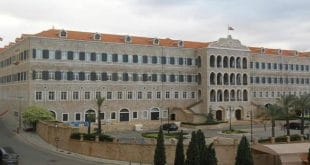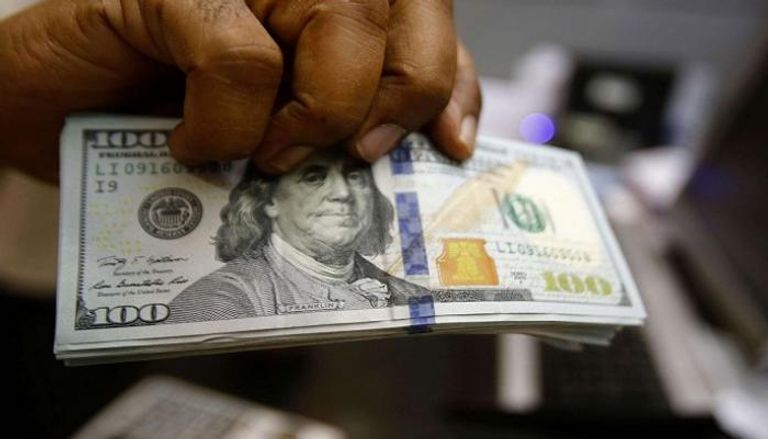للضاحية اقتصاد شعبي بامتياز، تغلب عليه الاستثمارات المتوسطة والبسيطة، والمهن اليدوية الصناعية الصغيرة، وقلما يجد المرء بناء سكنيا يخلو أسفله من المحال التجارية أو المستثمرة.
وإذا كان الغالب الاستثماري فرديا وعائليا، فإن عشرات فروع المصارف والشركات الكبرى والمجمعات الاستهلاكية من سوبر ماركت وغيرها، بالإضافة إلى المصانع الكبرى على تخوم الضاحية، شكلت الرافد الوظيفي لفئة كبرى من حملة الشهادات العليا والاختصاص، ووفّرت الاستقرار الوظيفي للعمال السوريين والفلسطينيين الذين نافسوا العامل اللبناني فيها بكثرة.
ومع تعذر الإحصاءات الحديثة، ثمة تقديرات تعود إلى عام 2016 تشير إلى أن عدد سكان الضاحية بلغ نحو مليون نسمة، يقطنون في أكثر من 150 ألف وحدة سكنية، يضاف إليهم أكثر من 25 ألف لاجئ فلسطيني في مخيم برج البراجنة.
وتشير التقديرات غير الرسمية إلى وجود أكثر من 37 ألف مؤسسة تجارية وصناعية، إضافة إلى عشرات فروع المصارف و8 مستشفيات، فيما يقدر مستشار اتحاد غرف التجارة والصناعة في لبنان الدكتور روجيه خياط عدد مؤسسات الضاحية الجنوبية المسجلة في غرفة التجارة والصناعة في بيروت وجبل لبنان بنحو 1290 مؤسسة تجارية وصناعية.
ويشير إلى أن المؤسسات مسجلة لحاجتها إلى التصدير أو الاستيراد، وتاليا ثمة الكثير من المؤسسات يمكن أن تكون نظامية أو غير نظامية، مقدرا عدد عمالها بما بين 27 ألى 30 ألفا.
تخلو الضاحية الجنوبية المكتظة سكانيا من مصانع ضخمة، فيما يغلب عليها وجود مشاغل أو مصانع صغيرة عائلية. وتشير مصادر متابعة إلى أن ثمة مستودعات ضخمة للبضائع من أدوات منزلية وكهربائية ومولدات كهرباء بملايين الدولارات في الضاحية الجنوبية، فيما يشي القصف اليومي للمؤسسات التجارية والصناعية بأن هدفه تفريغ الجنوب والضاحية من أي مقومات للحياة، وتاليا من إمكان العودة.
وتوضح أن الاقتصاد غير الرسمي (كاش) في الضاحية أكبر بكثير من ذلك الرسمي الذي يدفع متوجباته الضريبية، وعدد كبير من هذه المؤسسات غير الشرعية أصحابها من الجنسية السورية. علما أن الاقتصاد غير الشرعي في لبنان يشكل أكثر من 65%، وهذا ما يقلق المجتمع الدولي الذي يحض لبنان على محاربته، وخصوصا أنه ينمو على أنقاض النظم والمعايير القانونية والشرعية.
توازيا، تؤكد مصادر وزارة الاقتصاد أن لا أرقام محددة عن اقتصاد الضاحية الجنوبية، فيما تقدر الحركة الاقتصادية في الجنوب بما بين 3 إلى 4 ملايين دولار يوميا، لافتة إلى أن المشكلة في لبنان عموما هي أن المؤسسات لا تصرح كلها ضريبيا. وتكشف المصادر عينها أن الوزارة في صدد إطلاق مرصد “أون لاين” لتسجيل الأضرار الناتجة من الحرب، وسيجري تبويبها قطاعيا، لتصبح الأرقام متوافرة للجهات المانحة التي يمكن أن تساهم في الدعم المادي للمتضررين.
المصدر: سلوى بعلبكي – النهار
Devastated Suburb: The Economic Struggle of 1,290 Industrial and Commercial Institutions
Beirut’s southern suburb, also known as Dahieh, thrives on a popular economy dominated by small to medium-sized investments, with a notable presence of industrial crafts and manual trades. It’s rare to find a residential building in Dahieh without shops or commercial spaces on its ground floor.
While most investments in Dahieh are family or individually owned, numerous branches of major banks, large companies, supermarkets, and factories located on the outskirts play a crucial role in supporting the local economy. These institutions provide stable employment for highly qualified individuals, and have become a source of job opportunities for Syrian and Palestinian workers, who have become a competitive labor force alongside Lebanese workers.
Unofficial estimates suggest that the southern suburb hosts over 37,000 commercial and industrial enterprises, in addition to several branches of banks and 8 hospitals. Dr. Roger Khayat, an advisor to the Lebanese Chamber of Commerce and Industry, estimates that around 1,290 businesses in Dahieh are officially registered with the Chamber of Commerce and Industry in Beirut and Mount Lebanon. He notes that many of these businesses register for export and import purposes, though there are likely many unregistered enterprises as well.
The workforce in these registered businesses is estimated at 27,000 to 30,000 workers. Dahieh, densely populated, lacks large factories, but is known for its small, family-run workshops and industries. Sources also point to the presence of massive warehouses in Dahieh, storing millions of dollars’ worth of goods, including electrical appliances and generators.
The daily bombardment of commercial and industrial establishments in Dahieh appears aimed at stripping the region of its vital resources, leaving little chance for the revival of economic life. Additionally, the informal “cash” economy in Dahieh far surpasses the official economy, which is subject to taxes. Many of these unregistered businesses are reportedly owned by Syrians. It is worth noting that Lebanon's informal economy accounts for over 65% of the national economy, a figure that worries the international community, which is pushing Lebanon to address this issue.
Meanwhile, the Ministry of Economy has no precise figures on Dahieh's economy but estimates that the economic activity in southern Lebanon ranges between $3 to $4 million daily. The ministry also notes that many businesses in Lebanon fail to declare their taxes. In an effort to track war-related damages, the Ministry of Economy is preparing to launch an online observatory to register damages across sectors, providing data that could aid donors in offering financial support to affected areas.
Translated by economyscopes team
 سكوبات عالمية إقتصادية – EconomyScopes إجعل موقعنا خيارك ومصدرك الأنسب للأخبار الإقتصادية المحلية والعربية والعالمية على أنواعها بالإضافة الى نشر مجموعة لا بأس بها من فرص العمل في لبنان والشرق الأوسط والعالم
سكوبات عالمية إقتصادية – EconomyScopes إجعل موقعنا خيارك ومصدرك الأنسب للأخبار الإقتصادية المحلية والعربية والعالمية على أنواعها بالإضافة الى نشر مجموعة لا بأس بها من فرص العمل في لبنان والشرق الأوسط والعالم




